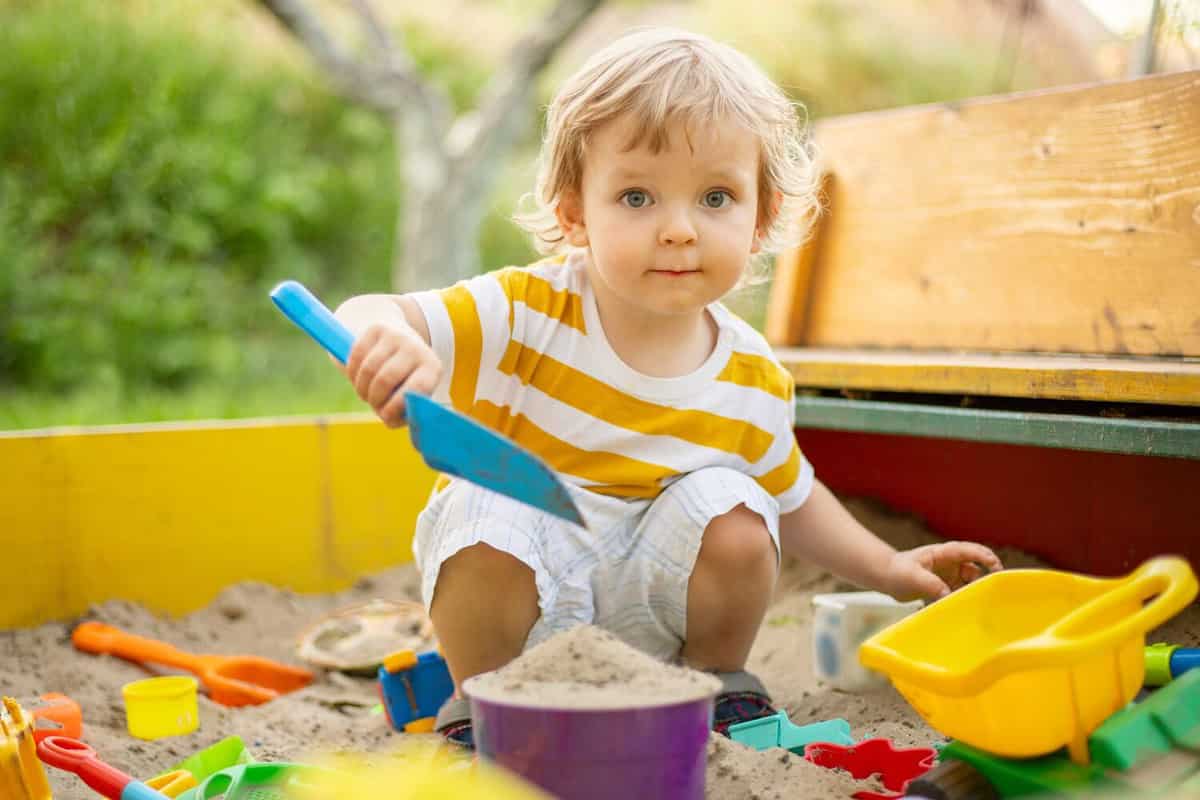Every parent who has experienced life with a toddler knows it isn’t exactly a walk in the park. Toddlers are notorious for having heightened emotions and a lack of impulse control. They can go from being sweet and cuddly to throwing a major tantrum in 30 seconds flat. Your toddler likely displays annoying or frustrating behaviors and you might wonder if you’re the only toddler parent dealing with these issues.
The good news is most of the annoying toddler behaviors you’re dealing with are likely developmentally appropriate. That doesn’t necessarily make it any easier to deal with them, but it’s helpful for parents to know that like any phase your child goes through, this too will pass. If you’re wondering about some of the behaviors your toddler displays, here are 10 annoying toddler behaviors that are totally normal.
Frequent Temper Tantrums

©Anna Kraynova/Shutterstock.com
Of all the behaviors toddlers are known for, one of the most common ones is frequent temper tantrums. There are many reasons that toddlers throw temper tantrums. Sometimes it’s because they’re tired or hungry and sometimes it’s because they’re upset that they didn’t get what they want.
Although these tantrums may be incredibly frustrating for parents, toddlers aren’t able to self-regulate their emotions like older children. This is why even a small slight can seem like such a big deal to them. However, these tantrums happen most frequently in the toddler years and most children stop throwing tantrums by the time they’re three or four years old.
Asking Why

©Andrii Spy_k/Shutterstock.com
Toddlers are infinitely curious about the world around them and they don’t always understand why you’re asking them to sit down, eat their dinner, or go to bed. Asking why is a common toddler behavior, even though it can be pretty frustrating for parents.
When toddlers are learning cause and effect, they not only want to know the reason why they’re being asked to do something, but they also want to know what will happen if they don’t. It can be frustrating for parents when a child won’t stop asking why, but remember that this is your toddler’s way of learning about the world.
Saying No

©Ann in the uk/Shutterstock.com
Another thing that toddlers say constantly is “no.” Once your toddler learns this word, it can start to feel like “No!” is their answer to everything. As frustrating as this can be, this bit of defiance is normal toddler behavior.
In this stage of their life, toddlers learn to push boundaries and exercise their free will. It can certainly be challenging when you’re the one trying to get them to put their shoes on or eat their dinner. However, one way to make this less frustrating for everyone is to offer your child choices. It’s not always possible when you need them to do something, but if you’re not in a rush, it’s a small way to give them some control over their situation.
Drawing on the Walls

©KayaMe/Shutterstock.com
It’s adorable when toddlers start to color their first pictures, but as a parent, you might not expect some of their first pictures to be on the walls or the furniture. Even though it’s obvious to us that the walls are not the best place to color a picture, this is something a toddler is still learning.
What they saw as exercising their creative skills, we see as them ruining the furniture or something else. The best way to combat this behavior is to only let them have crayons or markers when they’re supervised or keep the coloring tools out of reach.
Repeating the Same Things Over and Over

©BaLL LunLa/Shutterstock.com
Whether your toddler says the same thing to you every morning or requests the same book every night at bedtime, repetition is a normal part of being a toddler. Toddlers learn by repetition.
When you read them the same book every night, although it might seem boring to you, they’re starting to learn the words and may even start to memorize some of the sentences. Toddlers also tend to repeat things for comfort and reassurance. Even though you told them you were going to the park at least fifteen times already, they’ll still keep asking you to be sure.
Being Picky About What They Eat

©Yavdat/Shutterstock.com
Toddlers are notorious for being picky eaters as they start to explore new foods. You might even find them spitting out some of the foods you give them. It can feel annoying or frustrating when your toddler refuses to eat what’s on their plate, but there are many reasons for this behavior.
Not only is your toddler starting to learn what they like and don’t like, but they also want to exert control over their life. Even if they’re not quite old enough to do most things on their own, they’re starting to become more independent at this age. It’s not surprising that they want to choose what they eat and when, despite our best efforts to control their meals.
Hitting or Biting

©Nicoleta Ionescu/Shutterstock.com
Hitting, slapping, or biting is normal behavior for a toddler, but that doesn’t mean it’s behavior that you have to tolerate. Since a toddler isn’t usually old enough to say, “You made me mad when you took my toy,” they’ll likely respond to a sibling or other child physically by hitting or slapping instead.
Toddlers have a lot of strong emotions and they’re learning how to express them. Even still, when a toddler hits, bites, or scratches, it’s important to correct their behavior and let them know it’s not okay to hurt other people. In the moment, try to stay calm and express to them that you understand their emotions but it’s not okay to hurt others.
Overreacting to Everything

©Sharomka/Shutterstock.com
Whether it’s by whining and complaining or throwing a full-blown tantrum, toddlers tend to overreact to everything. They might even overreact to something happy, like jumping up and down or screaming because they found out they could have a cookie.
Toddlers have a lot of strong emotions and they’re learning every day how to control them. This often leads to them showing their emotions in a big way, even if it may not seem like an appropriate response at the time.
Throwing Toys and Other Objects

©yamasan0708/Shutterstock.com
Throwing objects, such as toys or shoes, is another behavior that’s common for toddlers even if it may be frustrating for those around them. Toddlers are constantly experimenting with things and learning how the world works.
They might sometimes throw items to see what happens when they do since they may not realize something could break or they could hurt someone. While you should teach your toddler it’s not okay to throw their toys inside or to throw objects at someone else, you can give them a chance to experiment with throwing by taking them outside and letting them throw appropriate objects, such as a ball.
Running from You

©goodmoments/Shutterstock.com
If you’ve ever had a toddler run from you in a public place, you know how scary it can be, especially if you’re in a parking lot or somewhere they could hurt themselves. As scary as this can be, it’s common toddler behavior.
Running away from you is another way that toddlers exercise their free will and exert control over their lives. Of course, this can be incredibly dangerous, and it’s important to correct this behavior. Teach your toddler to hold your hand when you’re walking outside and remind them frequently why it’s important that they stay next to you.
The image featured at the top of this post is ©oes/Shutterstock.com.
